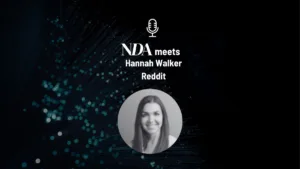Dora Michail-Clendinnen is Chief Strategy Officer at The Ozone Project and NDA’s monthly columnist.
COP26 has got us all talking about sustainability. While agreeing an immediate action plan to tackle climate change topped the agenda for delegates, for the rest of us – from businesses and brands to the average person on the street – the focus has been on the day-to-day changes we can make to ensure that we are all doing our bit to sustain the planet.
To Ozone’s audience of millions of online adults nationwide, sustainability increasingly matters more and more. In the months leading up to COP26, we have seen growing engagement with sustainability related content across our platform:
- On Monday 9th August when the UN published the Intergovernmental Panel on Climate Change report, which issued a ‘code red for humanity’, engagement with our science and environment content grew by +35% compared to the day before
- In mid-October when Prince William said that the world’s greatest brains and minds should focus on sustainability and not space travel – a response to Jeff Bezos firing ‘Captain Kirk’ into orbit on his Blue Origin rocket – we saw 1.6m daily page views for this content type
- Engagement with COP26 and sustainability content across the Ozone platform grew significantly across the two weeks of the conference, with 26.7m total page views +25% higher than the previous two weeks
The importance of dedicated editorial about sustainability from Ozone’s publishers is highlighted by recent Newsworks research suggesting that two-thirds of people in the UK rely on quality channels for information about the climate crisis, with 80% of respondents believing that established media such as newsbrands, radio and TV are driving awareness of climate change over and above environmental organisations, government and social media.
On day 2 of COP26 the words of national treasure Sir David Attenborough caught my attention. “If working apart we are a force powerful enough to destabilise our planet, surely working together we are powerful enough to save it.” Collaboration is rooted in the values of The Ozone Project – but I’m not here to talk about that – rather the advertising industry as a whole, where initiatives are already underway to ensure that we are using the power of our collective and substantive resources to affect change.
Starting with Ad Net Zero – the UK advertising industry’s response to the climate emergency – the aim of this pan-industry drive is to reduce the carbon impact of developing, producing and running advertising to real net zero by the end of 2030 and commit to making practical changes in the way advertising operations are run. Since its inception a year ago by the Advertising Association and in partnership with ISBA and the IPA, Ad Net Zero has won the near universal support of the UK’s advertisers and agencies plus many publishers. Ad Net Zero supporters can now certify their support through a new sustainability training certificate that has recently launched.
Digging a little further into ad-land’s response, in a recent snap-survey of Ozone’s agency and advertiser partners, we asked what areas of sustainability they plan to focus more on in the coming months. Individually reducing the use of single-use plastic, eating meat-free more often and making sustainability-based consumer choices such as cutting out their spending on fast fashion were all common themes in the responses.
From a business perspective, many advertisers said that through either existing or developing Environmental, Social and Governance (ESG) policies their agencies have accelerated their efforts to prioritise sustainability in the workplace. This comes in the shape of greener offices, greater accountability for dedicated sustainability teams, reducing energy consumption to hit net zero targets or vetting suppliers and prioritising based on their individual ESG policies.
A big focus for advertisers going forward will be how they communicate their sustainability credentials to consumers. While previously limited to brands such as the outdoor clothing and accessories company Patagonia, there is now a huge desire from larger advertisers wanting to promote their sustainability credentials. To reference the efforts recently made by Newsworks and the IAB, a good place for advertisers to start is by ensuring they are not unwittingly defunding climate journalism by keyword blocking in their media buying practices
Recognising that starting somewhere, however small, is how we begin to make a difference, Ozone’s engineering team noticed an increase in our energy usage following the growth in the number of ad campaigns we are delivering. Following the team’s analysis we have reduced our energy consumption by optimising the load of our campaign delivery, which resulted in an overnight drop of c.65% in our server usage.
For many of us COP26 has intensified our gaze on sustainability and encouraged us to scrutinise our own actions.
And while the conference wraps up and the delegates head home, I truly hope that the small changes we choose to make individually plus the collective initiatives we activate as an industry – such as Ad Net Zero – are here to stay.









